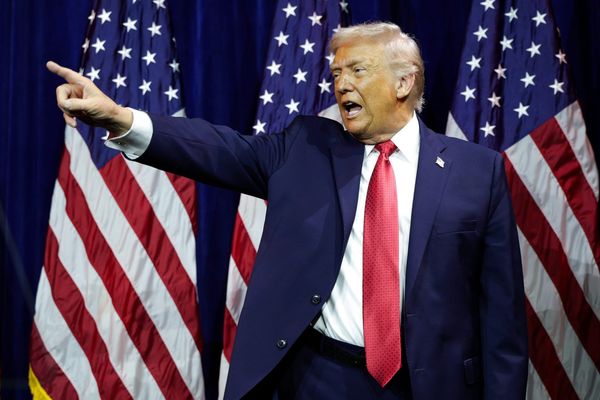Sen. Mark R. Warner took to the Senate floor Wednesday for an unusual purpose. Given his work as vice chair of the Senate Intelligence Committee, which is conducting an investigation parallel to Robert Mueller's, Warner (D-Va.) has generally tried to be circumspect in his public comments about Russia and President Trump. But the senator said he sensed a growing possibility that Trump might try to fire Mueller over the holidays, and he wanted to send a warning signal.
It's unclear whether Warner knows something we don't; the public campaign by conservative media and congressional Republicans to question the Mueller probe's legitimacy is clearly in full swing, and that alone might have been enough to spur Warner to act.
But how plausible is the possibility of Mueller being fired? Or is the anti-Mueller campaign merely an effort to undercut his eventual findings?
I think we can safely say three things:
- Roadblocks have been set up against firing Mueller — including by Republicans, Trump himself, his attorneys, and the man who actually has the power to do so right now, Deputy Attorney General Rod J. Rosenstein.
- Trump has shown little regard for such roadblocks.
- The environment for attempting to fire Mueller is clearly improving.
The list of comments precluding the possibility of firing Mueller is long, and it now includes Trump himself. “No, I'm not,” the president said Sunday when asked whether he was considering it. The same day, White House aide Marc Short said, “There’s no conversation about that whatsoever in the White House.” White House lawyers have said anonymously that it's not happening, and Trump's personal attorney Jay Sekulow said two months ago, “You could only terminate a special counsel for cause, and we just don't see any basis for cause.”
The lack of cause was also cited last week by Rosenstein, the man who appointed Mueller and has the power to remove him (Rosenstein can be fired by Trump if he refuses to do so). Rosenstein said nobody in the White House “has communicated to me the desire to remove Robert Mueller.” He also said he wasn't worried that Trump would fire him.
(Here's more on how Mueller could be fired, via Philip Bump. It would basically involve Trump firing people such as Rosenstein until he finds someone who would actually terminate Mueller.)
There's clearly a difference in how the White House has handled this possibility and how it handled the dismissal of FBI Director James B. Comey, which Trump previewed in a Fox Business interview. Trump has also recently declined to rule out pardoning former national security adviser Michael Flynn — a marked contrast to his answer Sunday about firing Mueller.
That said, it's not difficult to see Trump suddenly changing his tune. He could offer a new justification that just came along — perhaps a disclosure emanating from the Peter Strzok situation. Maybe he would say it was because Mueller is overreaching by digging into his personal finances in a way that violates Trump's red line. It would be pretty easy to suddenly change course and square it with past White House comments; he would just say that it wasn't being considered before and that there was no cause earlier, but now there is.
And there are increasing indications that this explanation would hold water with the one segment of the electorate that matters to Trump and could prevent Congress from taking punitive action against him: the GOP base.
While Republican senators have said that Mueller is being fair and have sent signals that Trump shouldn't fire him, the base is increasingly less sure. In a poll by Democratic pollster Garin-Hart-Yang in August, 65 percent of Trump voters said Mueller's investigation should be allowed to finish. But a poll from Democratic-leaning automated pollster Public Policy Polling last week showed that 56 percent of Trump voters would support firing Mueller to end the investigation, compared with 17 percent who opposed such a move.
Polls have long shown that Republicans overwhelmingly don't believe Russia interfered in the 2016 election — much less that it helped Trump or that he colluded with them — which means few in the GOP base are going to be all that upset if the investigation is disturbed. Layer on top of that the increasing campaign to delegitimize Mueller's probe and it is clear that the soil to fire Mueller was fertile to start with and is now being cultivated.
That's what Warner senses. The question is whether his hunch is correct.







